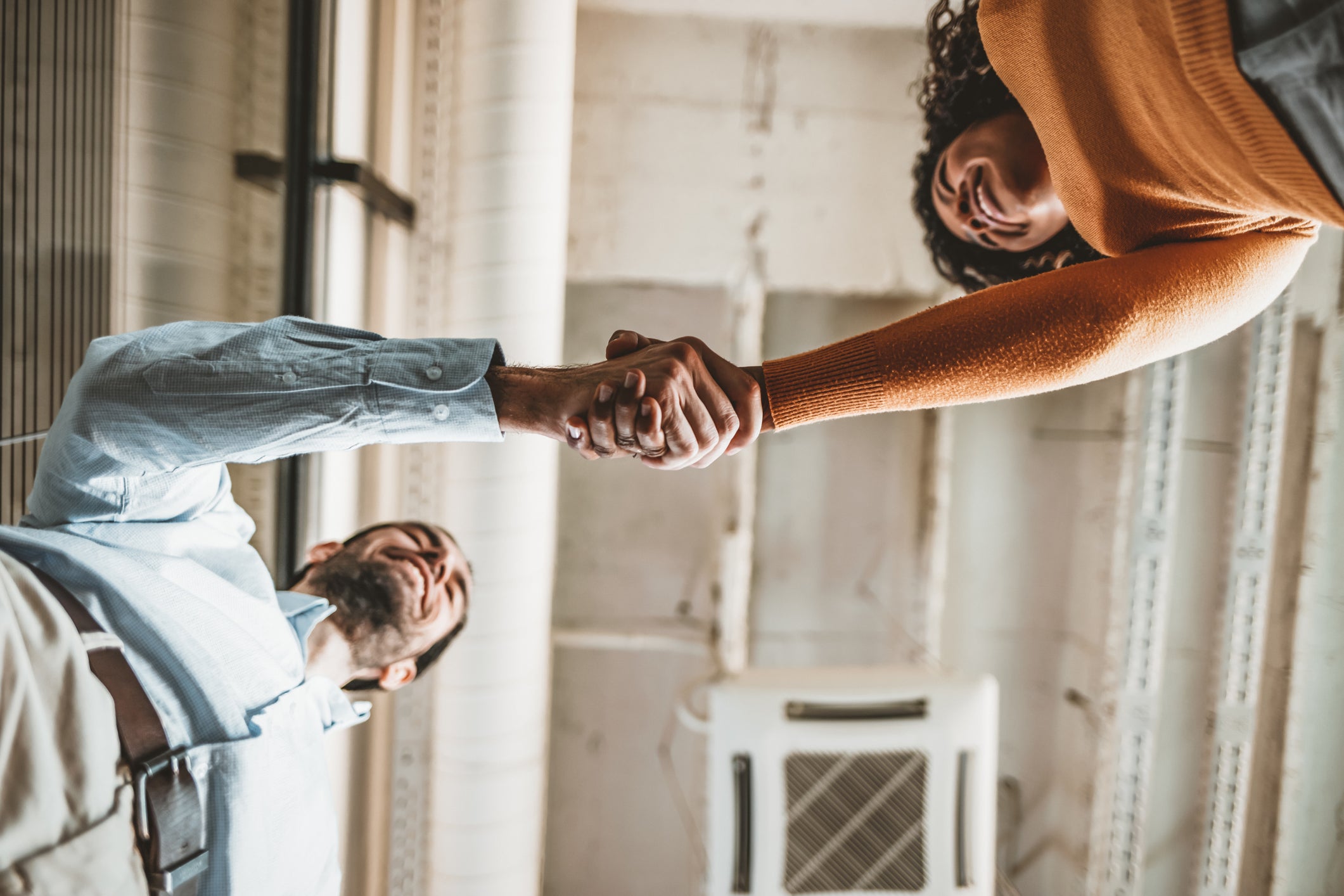Handshakes and hugs are good for you – we should embrace them again
In the long term, the benefits of physical contact may outweigh the risks, write Simon Nicholas Williams and Kimberly Dienes

Your support helps us to tell the story
From reproductive rights to climate change to Big Tech, The Independent is on the ground when the story is developing. Whether it's investigating the financials of Elon Musk's pro-Trump PAC or producing our latest documentary, 'The A Word', which shines a light on the American women fighting for reproductive rights, we know how important it is to parse out the facts from the messaging.
At such a critical moment in US history, we need reporters on the ground. Your donation allows us to keep sending journalists to speak to both sides of the story.
The Independent is trusted by Americans across the entire political spectrum. And unlike many other quality news outlets, we choose not to lock Americans out of our reporting and analysis with paywalls. We believe quality journalism should be available to everyone, paid for by those who can afford it.
Your support makes all the difference.When was the last time you shook someone’s hand or kissed them on the cheek to say hello? The pandemic has put a stop to these simple gestures, while social distancing and strict hygiene practices have become part of our everyday lives as to minimise the spread of the virus. But should this new way of interacting be permanent?
Some experts say we might not – or even should not – return to the old ways once the pandemic is over. Anthony Fauci, chief medical adviser to the US president, has said: “I don’t think we should ever shake hands ever again.” He argues it would reduce the spread of not only Covid-19 but also other viruses such as influenza.
Read More:
We disagree. As soon as the pandemic is under control and it is deemed safe to do so, there are good reasons why we should start gradually embracing some of our old habits: hugging, handshaking and gathering in groups. In cultures where such habits have been customary for centuries, doing so will have a host of social, psychological and biological benefits.
The loss of casual touch may be detrimental to society as a whole in a way that can’t be made up for by hugging those few people closest to us or in our household. It may be that, once it is deemed safe to do so, the long-term benefits of the handshake, the hug or the kiss on the cheek may outweigh the risks.
The importance of touch
From the moment of birth, physical contact increases our immunity, reduces stress and connects us with loved ones. Skin-to-skin contact with a baby regulates heart rate, reduces pain reactions and emotionally calms both mother and infant.
As adults, physical contact such as holding hands can provide a buffer against a stressful experience. Physical contact also increases immune function.
On a less intimate level, in many cultures, handshakes represent an important social ritual through which trust and belonging are formed and maintained. The philosopher Maurice Merleau-Ponty cited the handshake in his discussion of what he termed “inter-corporeality” – that is the, often tacit or unconscious, mutual recognition of our connectedness as human beings.
The wisdom of crowds
In our research, we have found that many people are anxious about returning to gathering in groups, even after the pandemic has subsided. This is understandable, but in the long term we should encourage group gatherings.
The ingrained nature of social habits and rituals help explain why social distancing has been so difficult and so unnatural for so many
Crowds provide opportunities for what sociologist Emile Durkheim called “collective effervescence”. Such gatherings help us form and “catch” emotions, which can provide the social glue for solidarity, togetherness and shared identity. This is a good thing provided the mood is a positive one, for example at weddings, concerts and sporting events.
Behaviours that are here to stay
With optimism over vaccines being tempered by concern over new variants, we need to reflect on which behaviours we should keep after the pandemic and which we should discard.
The pandemic may have made many people more aware of the role they play in protecting others, even when they themselves may not be particularly vulnerable to a disease. In many countries, health information campaigns early on led to dramatic improvements in self-reported personal hygiene, and many more people now understand exactly what good hand hygiene is, the rationale for it and the benefits it brings.

We should continue to avoid touch and engage in physical distancing when suffering from a cold or the flu. Mask-wearing, long established in other cultures as a means to protect others rather than ourselves, is now being more widely understood and adhered to, with many of us assuming it will be an occasional part of our lives for years to come. This is also a good thing.
Bringing back rituals
The ingrained nature of social habits and rituals helps explain why social distancing has been so difficult and so unnatural for so many. Although we have, quite remarkably, suppressed these gestures and behaviours in the short term, the depth of social connection they create and symbolise may not be so easy to replace in the long term.
Read More:
When it is safe to do so, policies that prevent us physically coming together as individuals will thankfully be lifted.
After the pandemic, we need to strike a balance between the old and new normal. We can take the best bits of both – regaining our need for physical touch while retaining our new and improved hygiene habits.
Simon Nicholas Williams is a senior lecturer in people and organisation at Swansea University. Kimberly Dienes is a lecturer in clinical and health psychology at Swansea University. This article first appeared on The Conversation.
Join our commenting forum
Join thought-provoking conversations, follow other Independent readers and see their replies
Comments